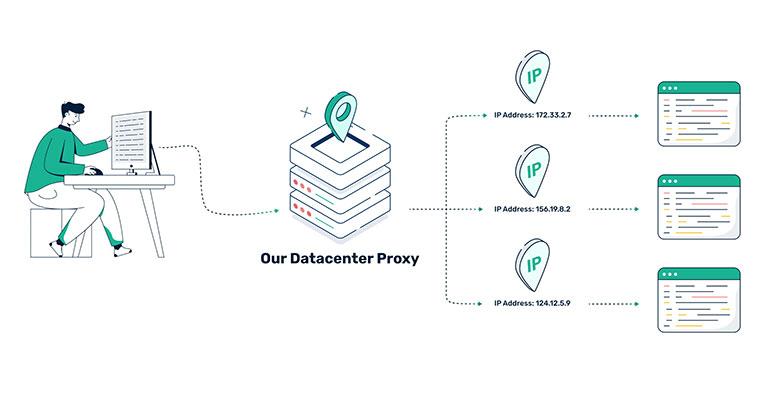In today’s digital landscape, the way we access the internet can dramatically shape our online experiences, whether for business, research, or personal use. wiht the rise of data privacy concerns and the need for reliable web scraping, the choice between datacenter proxies and residential proxies has become a hot topic. But what’s the real difference, and how do they affect your online activities? In this article, we’ll dive into the nuts and bolts of these two proxy types, exploring their performance, legitimacy, and regional access dynamics. By the end, you’ll not only understand how each proxy works but also which one might best suit your needs. So, whether you’re a seasoned web scraper, a marketer, or simply someone keen on enhancing your online privacy, let’s unravel the complexities of datacenter and residential proxies together!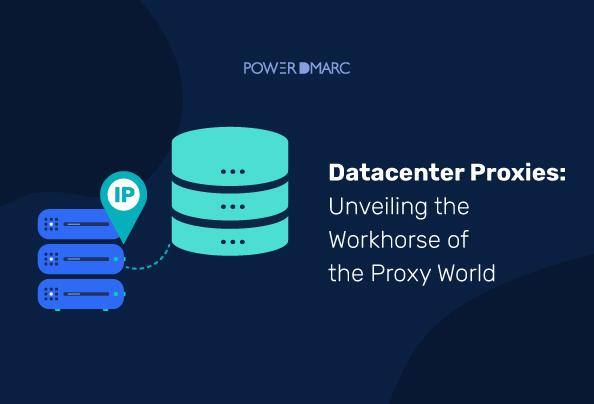
Understanding the Basics of datacenter and Residential Proxies
When diving into the world of internet connectivity, it’s essential to grasp the two primary types of proxies: datacenter and residential. Each serves distinct purposes and offers specific advantages, making them suitable for various online activities.
Datacenter Proxies are essentially servers housed in data centers, designed to handle numerous IP addresses simultaneously. They are known for their speed and efficiency, making them the go-to choice for tasks requiring high performance. Here are some of their standout features:
- Speed: generally faster due to direct connections to the internet.
- Cost-Effective: Typically cheaper than residential proxies.
- High Availability: Easy to scale up, providing numerous IPs.
On the flip side, Residential Proxies use IP addresses assigned by Internet Service Providers (ISPs) to real devices, which often makes them appear more legitimate. this legitimacy offers distinct advantages, notably when navigating restrictions or bans. Some key characteristics include:
- Legitimacy: Resembles typical user behavior, reducing the risk of being flagged.
- Geo-targeting: Access to region-specific content without restrictions.
- Reliability: Less prone to being blocked by websites.
When considering which proxy type to use, it’s crucial to evaluate your needs. As a notable example, if you’re conducting data scraping or executing tasks that require speed, datacenter proxies could be your best option.However, if you’re trying to access localized content or avoid detection, residential proxies might be more suitable.
| Feature | Datacenter Proxies | Residential Proxies |
|---|---|---|
| Speed | Very High | Moderate |
| Cost | Low | High |
| Legitimacy | Low | High |
| Blocking Risk | High | Low |
| Geo-Targeting | No | Yes |
Ultimately, understanding the differences between these two types of proxies empowers users to make informed decisions tailored to their specific online activities. Whether you’re looking to enhance performance, maintain anonymity, or navigate regional restrictions, choosing the right proxy type is a critical step towards achieving your online objectives.
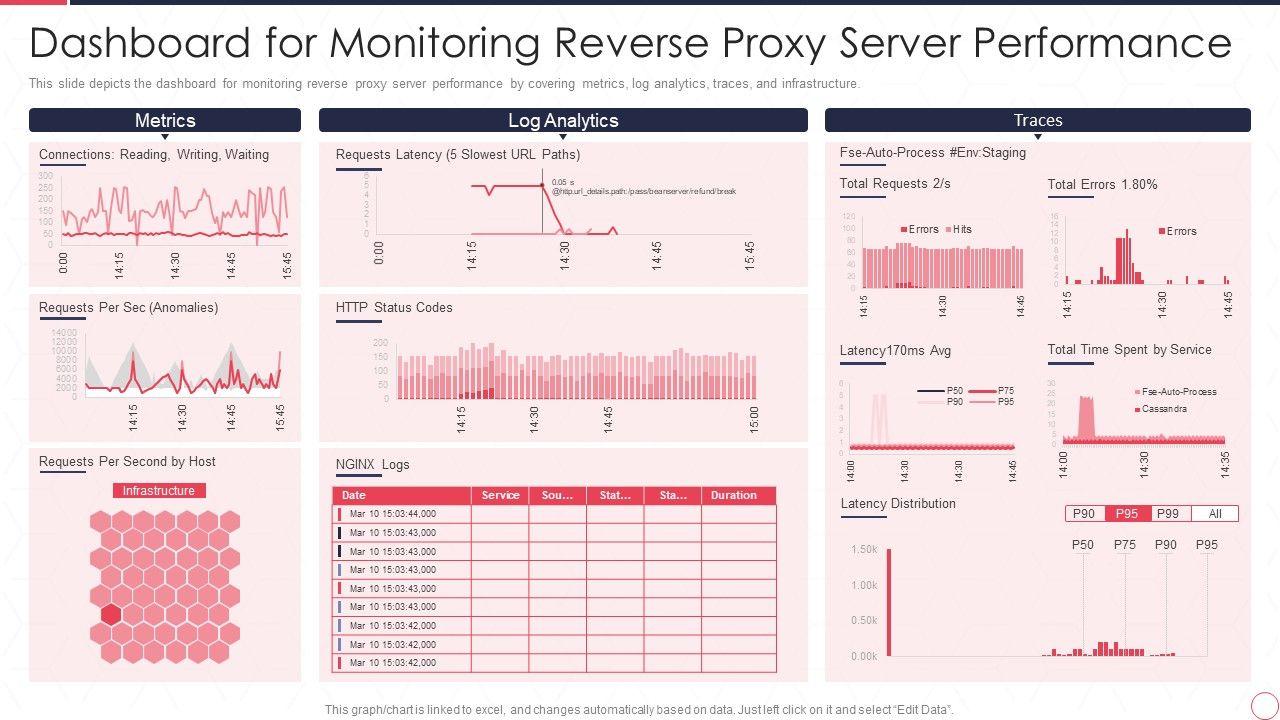
Performance Metrics That Matter for your Proxy Needs
When it comes to selecting the right proxy solution, understanding which performance metrics are most critical can substantially enhance your decision-making process. The choice between datacenter and residential proxies frequently enough boils down to a few key factors, which can have a profound impact on their effectiveness for your specific needs.
- Speed: One of the most vital metrics is the speed of the proxy. Datacenter proxies usually offer superior speed due to their robust infrastructure. They can handle a high volume of requests with minimal latency, making them ideal for tasks requiring swift responses.
- Uptime: Reliability is paramount in the world of proxies. Look for services that guarantee high uptime, as any downtime can lead to service disruptions. Datacenter proxies typically boast better uptime stats compared to residential alternatives.
- IP Rotations: The ability to rotate IP addresses is another critical factor. Residential proxies often provide more frequent IP rotations, which can help evade detection and ensure smoother crawling experiences, particularly for web scraping or data gathering tasks.
Another aspect to consider is the geographic distribution of the proxies. If your projects require access to content restricted by region, you’ll want a proxy provider that offers a wide range of IPs from different locations. Residential proxies excel here, as they can simulate legitimate users in various locales, whereas datacenter proxies may be more limited in their geographic offerings.
| Performance Metric | Datacenter Proxies | Residential Proxies |
|---|---|---|
| Speed | High | Moderate |
| Uptime | 99.9% | 97% |
| IP Rotation | Limited | Frequent |
| Legitimacy | Moderate | High |
| Geographic Access | Limited | extensive |
Lastly, consider the legitimacy of the proxies you intend to use. Datacenter proxies may face more scrutiny and can be easily flagged by target websites, while residential proxies, being tied to real users, often go unnoticed. This makes residential proxies a superior choice for tasks that require high anonymity.
Ultimately, the decision between datacenter and residential proxies hinges on your specific use case and the metrics that align with your objectives. Whether you prioritize speed, legitimacy, or access to diverse regions, understanding these performance indicators will guide you in choosing the best proxy solution for your needs.
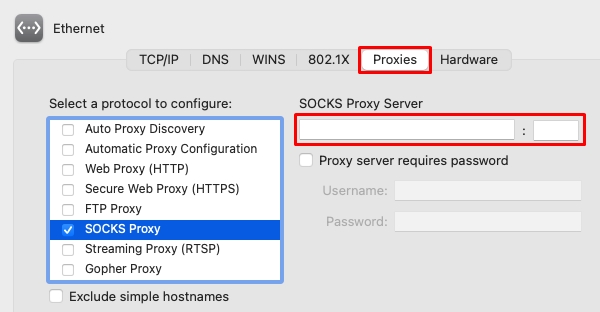
Legitimacy: Why Trust Is Key in Proxy Selection
When it comes to selecting proxies, the foundation of a successful strategy lies in the trustworthiness of your chosen provider.This is particularly crucial in an era where data privacy and protection regulations are constantly evolving. The legitimacy of a proxy service can significantly impact your operations, from ensuring compliance with local laws to maintaining the integrity of your data scraping activities.
In the world of proxies, datacenter proxies and residential proxies offer distinct advantages, but their reliability is often defined by the provider’s reputation. You want to ensure that your source is not only functional but also ethical. Here are some factors to consider:
- Clarity: A reputable provider shoudl be open about their operations, including how they gather their IP addresses.
- Customer Reviews: Look for user feedback and testimonials that can give insights into the service’s reliability and performance.
- Compliance: Ensure that the provider adheres to legal and ethical standards, especially in regions with strict regulations.
Moreover, the legitimacy of your proxy can affect your overall performance. Legitimate proxies offer a lower risk of bans or throttling, which can disrupt your activities. In contrast, using proxies from dubious sources can result in IP blacklisting, which not only hampers your current project but can also damage your reputation long-term. Here’s a simple comparison of potential risks:
| Proxy Type | Risk Level | Performance Consistency |
|---|---|---|
| Datacenter Proxies | Moderate | high |
| Residential Proxies | Low | Variable |
Another critical aspect of legitimacy is understanding the regional access dynamics of the proxies. Different proxies provide varying levels of geolocation accuracy, influencing your ability to perform local searches or access region-specific content. by ensuring that your proxy provider offers legitimate IPs from the regions you need, you can optimize your strategy effectively.
Ultimately, when choosing between datacenter and residential proxies, consider the broader implications of your choice. opting for a trustworthy provider not only safeguards your current projects but also fortifies your business against future challenges. In a digital landscape where trust is paramount, making the right selection in proxy providers can be your secret weapon for success.
The Impact of Geographic Location on proxy Performance
When it comes to proxy performance, the geographic location of the server can make a meaningful difference in how effectively the proxy operates. Different regions present unique challenges and advantages, influencing speed, latency, and overall user experience. Understanding these dynamics is essential for anyone looking to choose the right type of proxy for their needs.
Latency Issues: One of the most critical factors tied to geographic location is latency. Proxies located closer to the end user typically offer shorter response times, leading to faster page loads and smoother experiences. Such as:
- Datacenter Proxies: Often found in centralized locations, these proxies can provide quick access to a wide range of content, but they may face network congestion during peak times.
- Residential Proxies: These can be scattered across various locations, offering more diverse access but can have variable speeds depending on the individual connection quality.
Content Accessibility: The geographic location of a proxy can also dictate which content is accessible. Many web services employ geo-blocking techniques, limiting access based on the user’s location. This is where proxy performance shines:
- Regional Datacenter Proxies: Perfect for accessing content that is region-specific, such as streaming services or localized websites.
- residential Proxies: Offer the advantage of appearing as legitimate users in their respective regions, which helps in bypassing geo-restrictions without raising red flags.
Performance Variation: The performance of a proxy can vary not only by type but also by geographic factors. consider the following:
| Proxy Type | Optimal Location | Performance Characteristics |
|---|---|---|
| Datacenter Proxy | Centralized Locations | High speed, low latency |
| residential Proxy | Distributed Locations | Variable speed, high legitimacy |
Each proxy type has its strengths and weaknesses, and the impact of geographic location cannot be understated. For businesses that require consistent access to services across different regions,understanding local infrastructure and how it affects proxy performance is crucial.High-speed connections in urban centers may contrast sharply with slower rural connections, influencing decisions on which proxies to deploy.
Ultimately, the choice of proxy should be guided by the specific geographic needs of the user. Whether you prioritize speed, accessibility, or anonymity, recognizing the implications of geographic location on proxy performance will empower you to make an informed decision. The right proxy can enhance your operations, providing a seamless connection to the digital world.
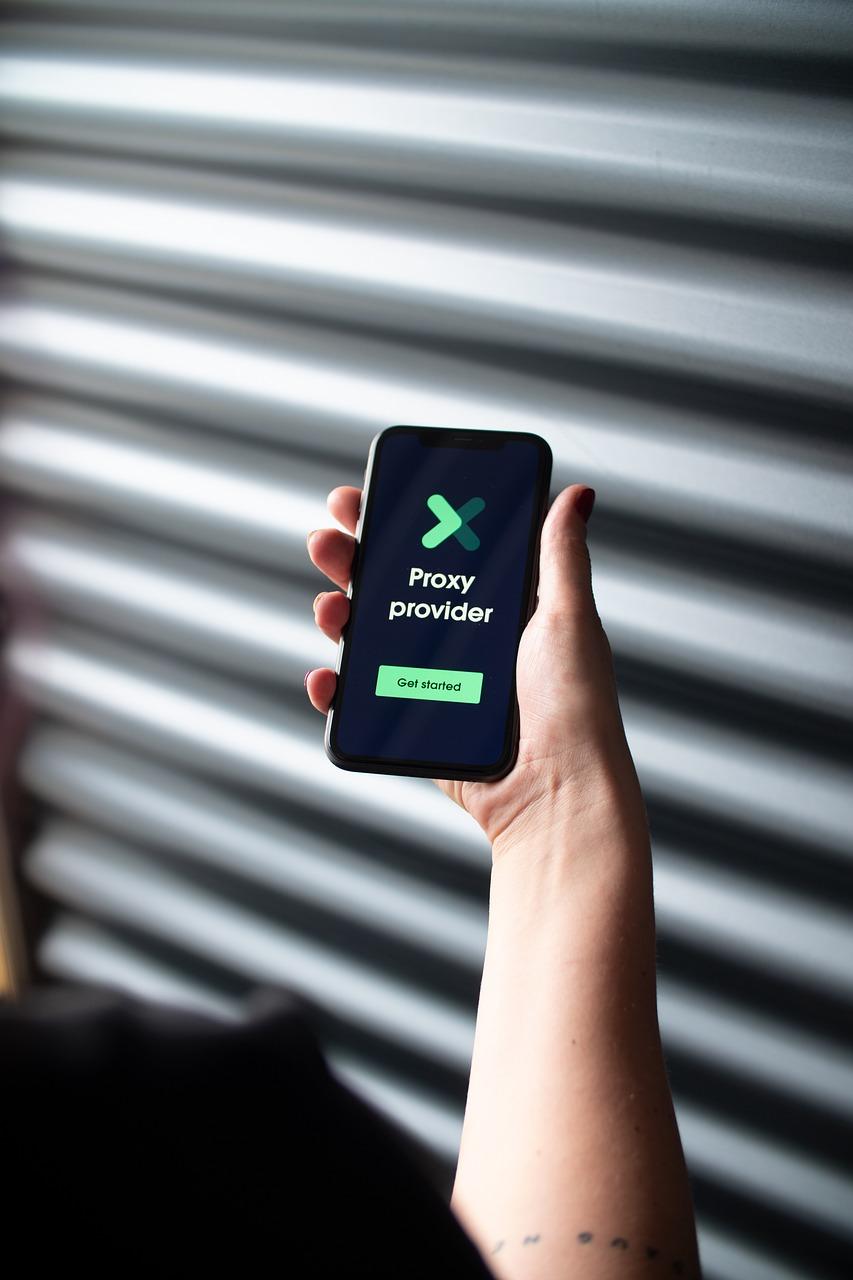
Cost Considerations: datacenter vs Residential Proxies
When choosing between datacenter and residential proxies,cost is a significant factor that can greatly influence your decision. The pricing structures of these two types of proxies differ not only in terms of initial investment but also in terms of ongoing expenses. Understanding these differences can help you make a more informed choice tailored to your specific needs.
Datacenter proxies are typically the more economical option. They are frequently enough offered at lower rates due to their mass production and the infrastructure that supports them. Here are some cost-related factors to consider:
- Lower Monthly Fees: Datacenter proxies generally come with lower subscription costs, making them a budget-pleasant choice for businesses or individuals who need bulk access.
- Higher Performance at Scale: If you’re running large-scale operations, datacenter proxies can give you the required bandwidth at a fraction of the cost.
- Pay-As-You-Go Plans: Many providers offer flexible pricing plans that allow you to pay only for the usage you need, which can be advantageous for occasional projects.
Conversely, residential proxies often carry a higher price tag due to their unique characteristics and advantages. While they can be more expensive, the investment may pay off in the long run, especially for specific use cases:
- Legitimacy and Trust: Residential proxies are assigned by Internet Service Providers (ISPs) to real users, which can help avoid bans and blocks from certain websites. This legitimacy often justifies the higher cost.
- Localized Access: If your target audience is geographically restricted, residential proxies can provide access to local content without triggering security protocols that might flag datacenter IPs.
- Variety of IPs: Many providers offer diverse IP pools, which can definitely help enhance your operations’ success rate, particularly in bypassing geo-restrictions and rate limits.
Here’s a quick comparison of the average costs you might encounter:
| proxy Type | Average Monthly Cost | Cost per IP |
|---|---|---|
| Datacenter Proxies | $10 – $50 | $0.5 – $2 |
| Residential Proxies | $50 – $200 | $5 – $15 |
Ultimately, the choice between datacenter and residential proxies boils down to your specific needs and budget constraints.While datacenter proxies are ideal for high-volume, low-cost operations, residential proxies may offer better options for personalized, legitimate access. Weighing these cost considerations against your project requirements will help you make the most effective choice.
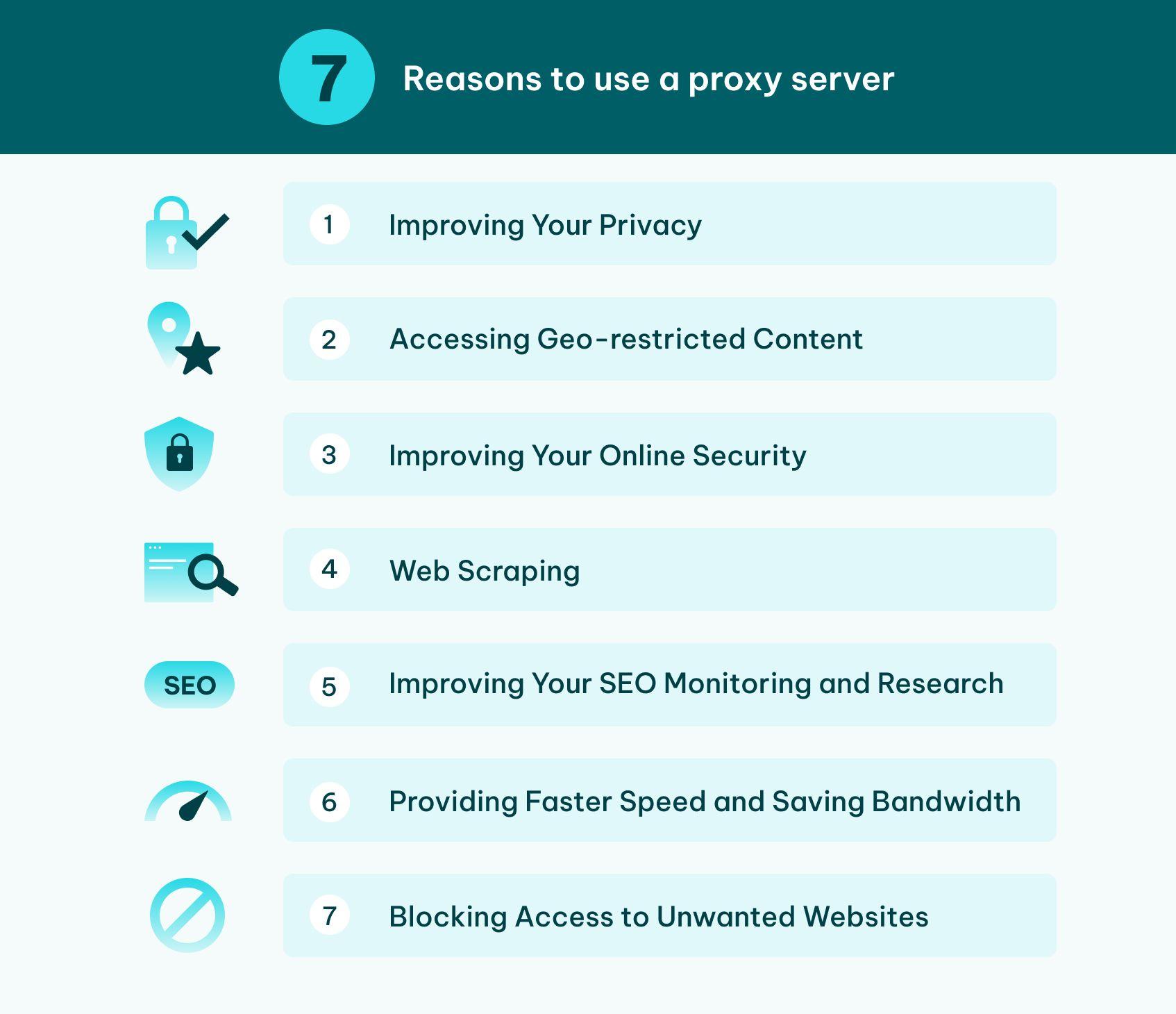
Navigating the Legal Landscape of Proxy Usage
When diving into the realm of proxies, understanding the legal implications is paramount. Using proxies, whether datacenter or residential, can often tread into murky waters, especially with varying regulations across different regions. It’s crucial to grasp the legal landscape to ensure compliance and protect your interests.
Legitimacy plays a significant role in proxy usage. Datacenter proxies are typically faster and more reliable due to their dedicated infrastructure. However, they can attract scrutiny since they are not associated with a residential ISP. This distinction is essential as many websites are increasingly using advanced algorithms to detect and block non-residential IP addresses. On the flip side, residential proxies, which utilize real IP addresses provided by ISPs, tend to fly under the radar, making them more compliant with various regulations.
consider the following legal aspects when choosing between proxy types:
- Terms of Service violations: Many platforms prohibit the use of proxies.using a datacenter proxy might breach these terms, risking account suspension.
- data Privacy Laws: Depending on your jurisdiction, you might face legal repercussions for scraping or accessing data without consent.
- Corporate Policies: Businesses must adhere to internal compliance rules when utilizing proxies for data gathering or market research.
Another critical aspect is regional access dynamics. different regions have distinct laws governing internet usage, affecting how proxies can be employed. For instance,many European countries enforce strict GDPR regulations that significantly influence how data can be scraped or collected. With datacenter proxies, you might find yourself inadvertently violating these laws due to the lack of a residential footprint.
| Proxy Type | Speed | Legitimacy | Regional Access |
|---|---|---|---|
| Datacenter | High | Questionable | Varied |
| Residential | Moderate | High | Broad |
navigating the legal landscape surrounding proxy usage requires careful consideration of performance, legitimacy, and regional access. By thoroughly understanding these elements, you can make informed decisions that align with both your operational needs and legal obligations. Always stay updated with local laws and the policies of the services you intend to use to ensure a smooth and compliant proxy experience.
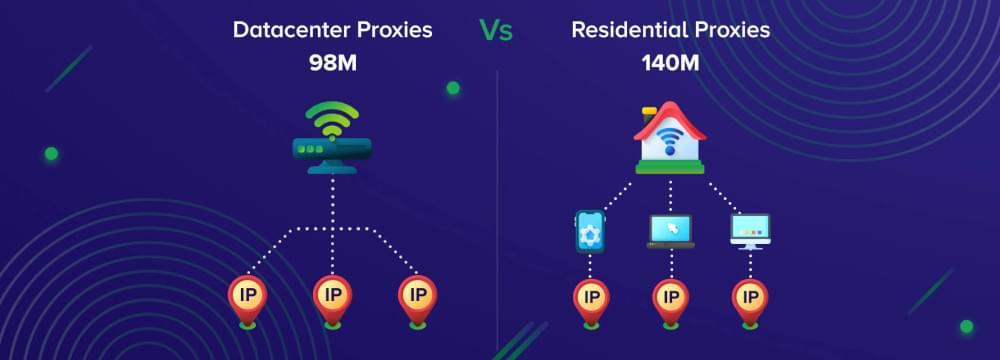
Use Cases: When to Choose Datacenter Proxies
When considering the right type of proxy for your needs, datacenter proxies stand out in various scenarios where speed, cost-effectiveness, and scalability are paramount. Here are several use cases that highlight when to opt for datacenter proxies:
- Web Scraping: For businesses and researchers needing to gather large volumes of data from websites, datacenter proxies provide high-speed connections and robust bandwidth. Their ability to handle multiple requests simultaneously makes them ideal for scraping large datasets without ample delays.
- SEO Monitoring: If you’re tracking your website’s performance or analyzing competitors,datacenter proxies offer the speed and reliability needed to perform regular checks without triggering rate limits. With numerous IP addresses available, you can simulate traffic from different locations effectively.
- Social Media Automation: For marketers or brands automating interactions on social media, datacenter proxies provide anonymity and the ability to manage multiple accounts from a single location.This helps to maintain your brand’s integrity while executing marketing strategies.
- Ad Verification: Ensuring your advertisements are displayed correctly across various platforms is crucial. Using datacenter proxies allows you to verify ad placements and content from different regions, reducing the risk of fraud and ensuring compliance with advertising standards.
- Gaming: Gamers often seek datacenter proxies for faster connections and reduced latency. By routing their gameplay through a datacenter proxy, players can minimize lag and enhance performance during competitive gaming sessions.
Moreover, datacenter proxies are typically more affordable compared to residential proxies, making them a go-to choice for businesses operating within budget constraints.They can handle high volumes of traffic at lower costs, allowing companies to allocate resources efficiently.
It’s important to note, however, that while datacenter proxies excel in speed and cost, they may not always be suitable for activities that require a higher degree of legitimacy, such as accessing sensitive accounts. For such use cases, a careful evaluation of the tasks at hand should guide your choice between datacenter and residential proxies.
the decision to use datacenter proxies should be driven by your specific needs—whether it’s for data collection,competitive analysis,or ensuring seamless online interactions. By leveraging their advantages, you can achieve your goals more effectively while maintaining an edge in your online endeavors.
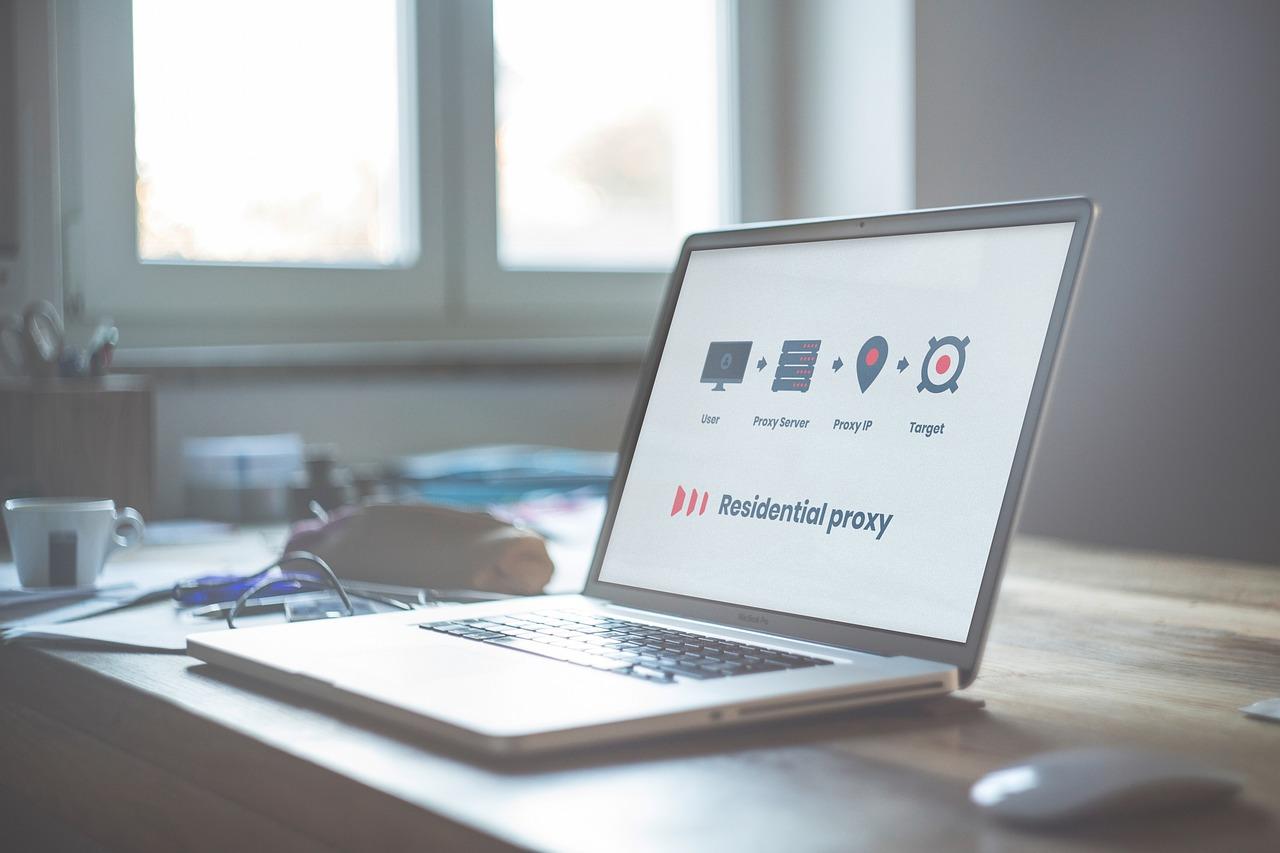
Use Cases: When Residential Proxies Are Your Best Bet
Residential proxies shine in a variety of scenarios where conventional datacenter proxies might fall short. These proxies use real IP addresses assigned to residential devices, making them appear as regular users. This feature can be especially advantageous in situations where anonymity and legitimacy are paramount.
As an example, if you’re involved in web scraping, especially on platforms that employ strict anti-bot measures, residential proxies provide a way to bypass these barriers.As they mimic genuine user behavior, they can significantly reduce the risk of being flagged or banned. This makes them ideal for:
- Data collection for market research
- Price monitoring across different regions
- Competitor analysis without detection
Another compelling use case is in sneaker copping. The highly competitive nature of limited sneaker releases frequently enough leads to websites implementing aggressive bot protection. By utilizing residential proxies, sneaker enthusiasts can improve their chances of securing those coveted pairs. Not only do these proxies prevent IP bans, but they also allow for:
- Multiple requests from various geographical locations
- Reduced latency and faster response times
Moreover, when it comes to ad verification, residential proxies ensure that your ads are displayed correctly to your target audience. Brands can easily verify that their advertising campaigns are functioning as intended across different regions. This is crucial for:
- Understanding region-specific ad performance
- Identifying fraudulent activities in real-time
In the realm of social media management, residential proxies offer a way to manage multiple accounts without the risk of suspension. Whether you’re scheduling posts or engaging with followers, using a residential proxy can help maintain the integrity of your accounts. This is particularly beneficial for:
- Influencers managing multiple profiles
- Agencies handling clients’ social media accounts
| Use Case | benefits of Residential Proxies |
|---|---|
| Web Scraping | Bypass anti-bot measures, collect data securely |
| Sneaker Copping | Increased chances of success, improved speed |
| Ad Verification | Ensure proper ad display, real-time fraud detection |
| Social media Management | Safeguard multiple accounts, reduce suspension risks |
Ultimately, residential proxies provide a layer of legitimacy and reliability that is often essential in today’s digital landscape. Whether you’re focused on scraping data, securing limited products, running advertising campaigns, or managing social media profiles, these proxies can offer the best solution to navigate the complexities of online operations.
Balancing Speed and Reliability in Proxy Services
When it comes to proxy services, achieving the ideal balance between speed and reliability can make or break your online experience.Users often find themselves choosing between datacenter proxies and residential proxies, each offering unique advantages and challenges. The key is understanding how these proxies perform under different conditions and how their legitimacy affects your online endeavors.
Datacenter proxies are often celebrated for their remarkable speed. They are built in large facilities and typically offer a higher level of performance due to superior bandwidth and lower latency.Though, this speed comes with its own set of challenges:
- IP blocks: Many websites recognize datacenter IPs and may restrict or ban them, leading to reliability issues.
- Detection: advanced algorithms can easily identify datacenter proxies, which can hinder access to certain online resources.
On the flip side, residential proxies provide a more reliable and legitimate browsing experience. Since these proxies use real IP addresses assigned to homes, they tend to bypass restrictions that block datacenter ips. Here are some of their key benefits:
- Legitimacy: Residential proxies are generally seen as more legitimate by websites, reducing the risk of bans.
- Geographical diversity: They offer access to a wider range of locations, which is crucial for localized content scraping or testing.
However,residential proxies may not always match the speed of their datacenter counterparts. Depending on the provider and the network conditions, users may experience fluctuations in performance. Here’s a quick comparison of the two:
| Feature | Datacenter Proxies | Residential Proxies |
|---|---|---|
| Speed | High | Moderate |
| Legitimacy | Low | High |
| cost | Lower | Higher |
| Geographical Diversity | Limited | Extensive |
Ultimately, the decision hinges on your specific needs. If your primary goal is speed and you are engaging in tasks that won’t draw attention, datacenter proxies are a viable option. But if you prioritize reliability and the ability to access restricted content, especially at a regional level, investing in residential proxies might potentially be the smarter choice. The best approach is frequently enough a hybrid solution, leveraging both types of proxies based on the situation at hand.

Regional Access Dynamics: Unlocking Global Content
In today’s digital landscape, the accessibility of global content often hinges on the type of proxy being utilized. Whether for scraping data, accessing region-restricted content, or enhancing online privacy, the choice between datacenter and residential proxies significantly impacts performance and legitimacy. Understanding the nuances of regional access dynamics can be the key to unlocking a wealth of information and opportunities.
Performance is a critical factor when evaluating proxy types. Datacenter proxies are known for their speed,providing users with seamless connectivity and rapid data transfer. Though, they frequently enough reside on servers that can be easily identified and blocked by websites. In contrast, residential proxies, which route traffic through real residential IP addresses, can offer better reliability in accessing restricted content.Their connection speed may vary, but they excel in bypassing geographical restrictions, which is vital for users looking to engage with content that is often guarded against scrapers.
Legitimacy plays a pivotal role in how content providers perceive proxy traffic. Websites are increasingly refined in detecting non-legitimate access, and many deploy measures to block datacenter IPs. Residential proxies, conversely, present an IP address that resembles regular home users, making it harder for websites to detect and flag unusual behavior. This subtlety can be crucial for businesses and marketers looking to gather insights without raising red flags.
to illustrate the differences clearly, consider the following table comparing datacenter and residential proxies:
| Feature | datacenter Proxies | Residential Proxies |
|---|---|---|
| Speed | High | Variable |
| Legitimacy | Moderate | High |
| Cost | Lower | Higher |
| Availability | Limited geographical coverage | Broad geographical coverage |
When it comes to regional access dynamics, the choice of proxy can be influenced by the specific markets or regions a user targets.If the goal is to fetch data from a specific locale or engage with content tailored for a particular audience, residential proxies can significantly enhance the likelihood of success. Their ability to mimic local user behavior not only improves access but also enriches the data quality collected, leading to better insights and engagement strategies.
the decision between datacenter and residential proxies should be informed by a user’s particular needs, objectives, and the specific content landscape they are navigating.By carefully weighing the strengths and weaknesses of each proxy type, users can create a tailored approach that maximizes their access to global content while maintaining the integrity and legitimacy of their online activities.
Making the right Choice: Tailoring Proxy Solutions to your Needs
When it comes to choosing between datacenter and residential proxies, the decision largely hinges on your specific needs and objectives. Both types of proxies come with their own sets of advantages and disadvantages,making it crucial to assess which option aligns best with your requirements.
Performance is frequently enough at the forefront of this discussion.Datacenter proxies excel in speed and stability, making them ideal for tasks that demand high performance, such as web scraping or data mining. They offer:
- High speed and low latency
- Cost-effectiveness for bulk usage
- Scalability for large projects
On the flip side, residential proxies stand out when it comes to legitimacy. These proxies use IP addresses assigned to real devices, which makes them less likely to be flagged by websites.This becomes especially important for:
- Social media management
- Ad verification
- Price comparison across different regions
Moreover, the issue of regional access can significantly influence your choice. If your projects require access to geo-restricted content, residential proxies can provide a distinct advantage.They offer:
- IP addresses from specific geographical locations
- A broader range of global access
- Better chances of bypassing location-based restrictions
| Feature | Datacenter Proxies | Residential Proxies |
|---|---|---|
| Speed | High | Moderate |
| Cost | Low | Higher |
| Legitimacy | Low | High |
| Geo-Restrictions | Poor | Excellent |
your choice between datacenter and residential proxies should not be made lightly. Understanding the nuances of performance, legitimacy, and regional access can empower you to make a decision that enhances your online activities. Think about your specific use cases,the importance of anonymity,and how critical speed is for your operations. by tailoring your proxy solution to meet your unique needs,you can unlock a world of possibilities in the digital landscape.
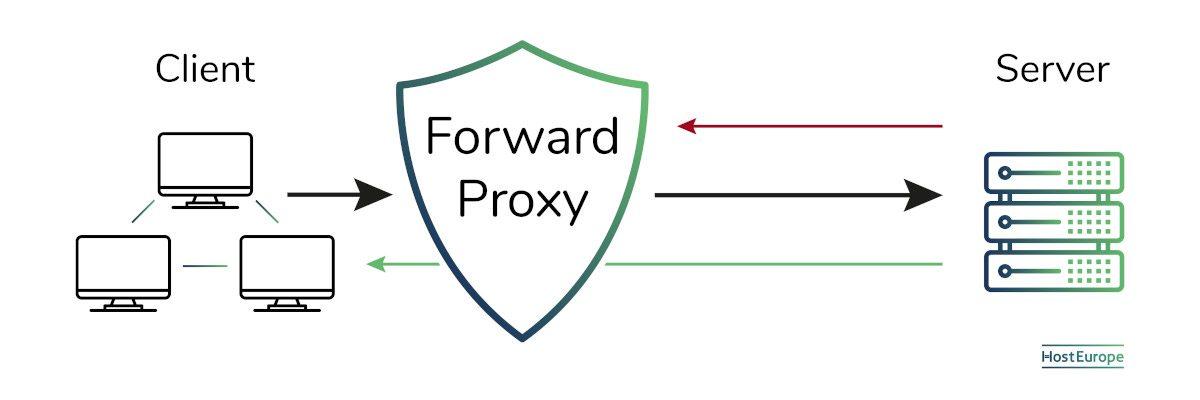
Final Thoughts: Finding the Perfect Proxy for Your Goals
when it comes to selecting the right proxy for your specific needs, understanding the nuances between datacenter and residential proxies is crucial. Each type offers distinct advantages that cater to different objectives, whether that’s web scraping, accessing geo-restricted content, or ensuring anonymity. Let’s break these down further.
Performance: Datacenter proxies excel in speed and reliability,making them ideal for high-volume tasks. They are hosted in data centers, which allows for quick connections and efficient handling of multiple requests. Though, if your tasks require a more nuanced approach, such as interacting with sites that have strict anti-bot measures, residential proxies provide that edge. They operate from real devices with genuine IP addresses, which helps in mimicking human behavior more effectively.
Legitimacy: One of the key differences lies in how websites perceive the traffic coming from each type of proxy.While datacenter proxies may face restrictions or even bans when accessing certain sites due to their association with data centers, residential proxies enjoy a level of legitimacy since they appear as regular users. This can be particularly beneficial if your operations depend on maintaining a clean reputation with the websites you interact with.
Regional Access Dynamics: If your goals involve accessing region-specific content, residential proxies offer a significant advantage. They provide IP addresses from various geographic locations, allowing you to bypass regional restrictions effortlessly. Meanwhile, datacenter proxies might be limited in terms of geographic diversity, potentially hindering your ability to access localized content. It’s critically important to consider what regions you need to target and how that impacts your overall strategy.
Ultimately, the choice between datacenter and residential proxies boils down to your specific use case. If speed and cost-effectiveness are your primary concerns, then datacenter proxies might be the way to go. However, for tasks that require a more human-like interaction with websites or for accessing region-specific content, residential proxies are worth the investment.
evaluating your goals alongside the characteristics of each proxy type can help ensure that you select the perfect fit for your needs.Remember to assess factors like performance, legitimacy, and regional access dynamics to make an informed decision that aligns with your objectives.
Frequently Asked Questions (FAQ)
Q&A: Evaluating datacenter vs. Residential Proxies: Performance, legitimacy, & Regional Access Dynamics
Q1: What’s the main difference between datacenter proxies and residential proxies?
A1: Great question! Datacenter proxies are essentially servers that are not affiliated with Internet Service Providers (ISPs). They’re faster and more cost-effective, making them a popular choice for high-performance tasks. On the other hand, residential proxies use IP addresses assigned to real devices by ISPs, which makes them appear more legitimate. This can be crucial for tasks requiring authenticity, like web scraping or accessing geo-restricted content.
Q2: how do performance levels compare between the two types of proxies?
A2: When it comes to performance, datacenter proxies generally edge out residential ones in speed.Since they are hosted on powerful servers,they can handle high traffic loads without a hitch. However, if you need to interact with websites that have strict bot detection mechanisms, residential proxies might perform better due to their real user IP addresses. So, it’s really about what kind of performance you need for your specific tasks.
Q3: Are there any concerns about the legitimacy of either proxy type?
A3: Absolutely! Legitimacy is a key factor. Datacenter proxies can raise red flags for websites since they often associate with high-volume traffic and bot activity. This makes them more susceptible to bans on sites that monitor user behavior. Residential proxies, being tied to real users, have a lower chance of being flagged. If your work involves sensitive data or requires trustworthiness, residential proxies are usually the safer bet.
Q4: Can you explain the regional access dynamics of both proxy types?
A4: Sure! Regional access is all about how well you can connect to content based on your location. Residential proxies are fantastic for accessing content that is geo-blocked,as they can provide IP addresses from specific locations. This is particularly useful for marketers or researchers who need to view localized content. Datacenter proxies,while fast,might not have the same geographic reach unless you specifically choose providers that offer diverse IP pools. so, if regional access is crucial for you, carefully consider your proxy choice.
Q5: Which type of proxy would you recommend for a business focusing on web scraping?
A5: If your business relies heavily on web scraping, I would recommend starting with residential proxies. They offer a higher level of anonymity and are less likely to get blocked. Plus, they can definitely help you gather data without raising suspicion. However, if you’re looking at scraping sites without strict security measures, datacenter proxies could give you the speed advantage you need. Ultimately, it may even be worth using a combination of both for different tasks!
Q6: What should businesses consider when deciding between these proxies?
A6: Businesses should weigh their needs carefully. Consider factors like the sensitivity of the data you’re working with, the importance of speed, cost constraints, and the level of legitimacy required. Think about the websites you’ll be targeting and their security measures. Often, a mixed approach yields the best results, allowing you to leverage the strengths of both types of proxies.
Q7: any final thoughts on choosing the right proxy for specific use cases?
A7: Absolutely! The right proxy really depends on your specific use case. Analyze your tasks and the environments you’ll be operating in. For high-stakes, sensitive operations requiring a human touch, go with residential proxies.For heavy-duty tasks where speed and volume are paramount, datacenter proxies might be your best bet. Ultimately, understanding the nuances of each type will empower you to make the best decision for your needs. Happy proxy hunting!
Final Thoughts
choosing between datacenter and residential proxies is not a one-size-fits-all decision. As we’ve explored, each type comes with its own set of strengths and weaknesses that can significantly impact your online activities. If speed and cost-efficiency are your top priorities, datacenter proxies might be the way to go. Though,if you’re focused on legitimacy and the ability to bypass regional restrictions,residential proxies could be your best bet.
Ultimately, it’s crucial to assess your specific needs and objectives. Think about what you’re trying to achieve and how each type of proxy aligns with your goals. Whether it’s scraping data, managing multiple social media accounts, or ensuring secure browsing, the right choice can make all the difference.
So, don’t rush into your decision! Take the time to evaluate your options, consider the nuances of performance, legitimacy, and regional access, and choose wisely. With the right proxy solution in hand, you’ll navigate the digital landscape with confidence and efficiency. Happy browsing!

